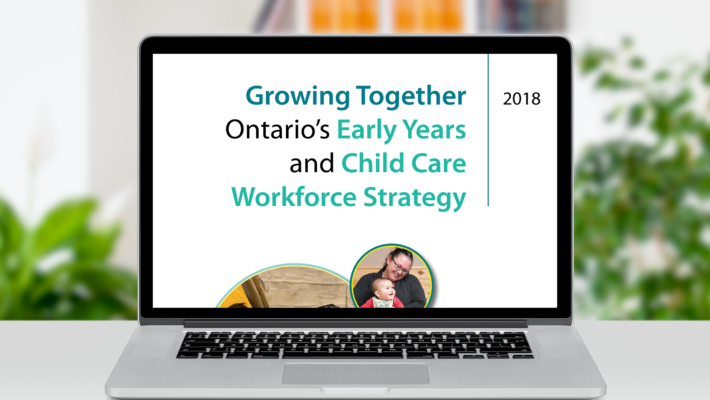Starting in September, students enrolled in early childhood college diploma programs across Ontario will follow a new set of program standards shaped, in part, by the College’s recommendations to the Ministry of Training, Colleges and Universities (MTCU). Education is one of the core requirements to register with the College.
The College’s recommendations to the MTCU were designed to update the program standards so they remain relevant and equip the next generation of RECEs to practice safely, competently and professionally. These updates will help prepare new graduates to enter the profession and practice alongside their fellow RECEs to meet the needs and interests of children and families.
Much has changed since the current diploma program standards were implemented in 2012 including the introduction of full-day Kindergarten and the publication of the College’s new Code of Ethics and Standards of Practice, 2017. Workplaces and learning environments are increasingly complex or diverse, and RECEs need the knowledge and skills to keep pace.
Education is critical for preparing for safe, competent, and professional practice and becoming registered with the College as an RECE. When the MTCU initiated a review of their 2012 program standards for the early years and child care sector, the College was invited as a key stakeholder to participate in the review process. One of the ways the College provided feedback was through a report with several recommendations.
The majority of the College’s recommendations were included in the new program standards.
Specifically, the updated standards emphasize the importance of:
- Professional learning and ongoing development: RECEs understand the value of continuous professional learning and are able to integrate their learning goals and plans in their daily practice.
- Professional and ethical conduct: RECEs have the skills and coping strategies they need to behave professionally, adapt to any situation and take the appropriate action to keep their workplace safe.
- Inclusive collaboration and communication: RECEs learn to communicate with a range of stakeholders including families, colleagues, employers, local authorities and community service providers. RECEs value and respect social, cultural and linguistic diversity.
- The regulatory perspective: RECEs, like other regulated professionals in Ontario, have a number of obligations that serve the public interest. RECEs have a solid knowledge of the regulatory framework to maintain safe learning environments and quality practice.
- Vocational learning outcomes and performance measures: Program standards are clear, consistent and explain the levels and quality of performance RECEs must achieve in order to graduate from the program and register with the College.
- Legislation, regulations, and the Code and Standards: Curriculum documents and resources are updated to reflect the latest government policies and College standards so RECEs are prepared to meet the current legal obligations and professional requirements.
The full report submitted by the College to the MTCU, which outlines the recommendations in more detail, can be found here.
Did you know?
- 24 Ontario College of Applied Arts and Technology (OCAATs) deliver ECE diploma programs: 22 in English and 2 in French.
- 91% of members in good standing with the College are OCAAT graduates.
- 42% of RECEs who graduated from OCAAT programs work in licensed child care and 25% work in the education sector.




